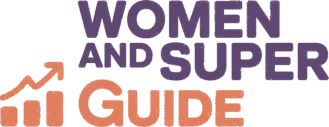Empower Your Financial Independence Today

Financial independence is not just a goal but a pathway to empowerment, offering the freedom to make choices that truly reflect your aspirations. Are you ready to take charge of your financial future? This guide outlines practical strategies that not only foster savings but also nurture confidence in managing your finances.
What You Will Learn
- Financial independence enhances overall well-being, empowering women to pursue personal growth and contribute to their communities.
- Common barriers to financial independence include fear of failure, lack of confidence, societal expectations, and financial literacy gaps.
- Conscious spending can lead to significant savings; consider tracking expenses, prioritizing needs over wants, and setting spending limits.
- Meal planning and budgeting not only save money but also promote healthier eating habits by avoiding last-minute takeout.
- Automating savings is a highly effective strategy to ensure consistent contributions to your savings without added effort.
- High-yield savings accounts offer better interest rates compared to traditional accounts, maximizing your savings potential.
- Creating a personalized financial plan involves setting clear goals, assessing your current situation, budgeting, and planning for emergencies.
- Engaging with financial advisors and utilizing digital tools can provide tailored insights and enhance your financial literacy.
- Joining financial communities for support can offer encouragement and valuable learning opportunities on your journey to financial independence.
- Taking action with small, achievable goals can help you build momentum towards larger financial objectives and inspire others!
Key Barriers to Women's Financial Independence
Understanding the barriers women face on their path to financial independence can empower them to overcome these challenges.
Fear of Failure
This psychological barrier can prevent women from taking risks with their finances.
Lack of Confidence
Many women doubt their financial knowledge and abilities, which hinders their growth.
Societal Expectations
Stereotypes around money management can discourage women from taking control of their finances.
Financial Literacy Gaps
Many women have not been taught essential financial skills, leading to uncertainty and fear.
Empowering Women Through Financial Independence: A Guide to Practical Savings Strategies
Understanding the Importance of Financial Independence for Women
Financial independence is more than just having money; it's about having the freedom to make choices that align with your values and aspirations. For many women, this means the ability to support themselves, invest in their dreams, and plan for a secure future. When we talk about empowerment, it includes taking control of your finances, which ultimately leads to greater confidence and decision-making power. You can learn more about women's financial literacy and superannuation to further your understanding.
Moreover, achieving financial independence contributes significantly to a woman’s overall well-being. It allows for enhanced life experiences, opportunities for personal growth, and the ability to contribute to your community. Imagine being able to travel, pursue further education, or even start a business without the constant worry about finances. Understanding this connection can inspire you to prioritize your financial journey!
Identifying Key Barriers to Financial Independence
Despite the benefits, many women face obstacles on the path to financial independence. Some psychological barriers include fear of making mistakes with money, negative self-talk, or simply not knowing where to start. These feelings can create a mental block that makes managing finances seem overwhelming.
Additionally, societal pressures and expectations can hold women back. Many still face stereotypes around money management and investing, which often discourages them from taking the reins. It's essential to recognize these barriers and actively work to overcome them. Here are a few common barriers women might encounter:
- Fear of failure: This can prevent you from taking risks with your finances.
- Lack of confidence: Many women doubt their financial knowledge and abilities.
- Societal expectations: Stereotypes can pressure women into certain roles, limiting their financial growth.
- Financial literacy gaps: Many women aren't taught essential financial skills, leading to uncertainty.
Building a Strong Financial Foundation: Daily Habits to Foster Savings
Conscious Spending: Making Every Dollar Count
Being mindful about spending is a powerful way to ensure that your money works for you. Instead of mindlessly swiping your card, take a moment to evaluate your purchases. Ask yourself: "Is this something I truly need, or is it merely a want?" This simple question can lead to significant savings over time.
One effective strategy is to create a spending plan, which helps you allocate your money toward necessities while still allowing some room for enjoyment. Here are some tips to help you with conscious spending:
- Track your expenses: Use apps or a simple spreadsheet to see where your money goes each month.
- Prioritize needs over wants: Focus on essential items before considering luxuries.
- Set limits: Establish spending limits for non-essentials to keep your budget on track.
Meal Planning and Budgeting for Cost Efficiency
Meal planning is a fantastic way to save both time and money! By preparing meals in advance, you can avoid those last-minute, expensive takeout orders. Plus, it helps you eat healthier, which is a win-win. Start by creating a weekly meal plan based on what you already have in your pantry.
Here are some strategies to incorporate meal planning into your budgeting:
- Create a shopping list: Stick to it to avoid impulse buys.
- Batch cooking: Prepare large portions that can be frozen for later.
- Use seasonal produce: It's often cheaper and fresher.
Automating Savings for Financial Security
One of the best ways to ensure you save money is by automating your savings. Setting up an automatic transfer from your checking account to your savings account can help you prioritize saving without even thinking about it. This is especially useful for those who might forget to save each month.
Consider these benefits of automating your savings:
- Consistency: You save the same amount regularly, making it easier to reach your goals.
- Less temptation: Money is moved before you have a chance to spend it.
- Growth: Over time, you'll see your savings grow without putting in extra effort.
Utilizing High-Yield Savings Accounts for Maximized Savings
When it comes to saving money, not all savings accounts are created equal! High-yield savings accounts offer a better interest rate compared to traditional accounts, allowing your money to grow faster. This is a great option for building a financial cushion for emergencies or future goals. For more strategies, check out these smart savings tips for Australian women.
Here are some advantages of using a high-yield savings account:
- Higher interest rates: This means your savings will accumulate more over time.
- Easy access: Many high-yield accounts still allow you to access your money when needed.
- No fees: Some accounts come with no monthly maintenance fees, maximizing your earnings.
Pro Tip
Did you know? Automating your savings is one of the simplest yet most effective ways to build your financial security. By setting up automatic transfers to your savings account, you can save money without even thinking about it. This not only helps you maintain consistency but also reduces the temptation to spend. Start small—aim to save just a few dollars each week and watch how it grows over time!
Consolidating Your Financial Knowledge: Next Steps Towards Independence
Now that we've explored the practical savings strategies and insights into financial independence, it's time to consolidate that knowledge into a personalized plan. Understanding your finances is an empowering step in the right direction! I truly believe that when we take charge of our financial future, we pave the way for greater security and independence.
Creating a personalized financial plan is about aligning your goals with actionable steps. Start by reflecting on what matters most to you—whether it's saving for a home, funding your children's education, or simply building a comfortable retirement. Each of these goals will guide you in crafting a plan that reflects your unique journey.
Creating a Personalized Financial Plan
To develop an actionable financial plan, consider these key components:
- Set Clear Goals: Define short-term and long-term financial objectives.
- Assess Your Current Situation: Review your income, expenses, debts, and savings.
- Create a Budget: Outline a spending plan that aligns with your goals.
- Plan for Emergencies: Ensure you have an emergency fund in place.
- Review and Adjust Regularly: Keep track of your progress and make changes as needed.
Remember, this plan is yours! It should evolve as your circumstances and goals change. Engaging with resources like Women and Super Guide can provide valuable insights to enhance your journey towards financial independence!
Engaging with Financial Advisors and Digital Tools
Working with a financial advisor can offer personalized insights tailored to your situation. Here’s how to make the most of their expertise:
- Define Your Needs: Identify what specific areas of your finances you need help with.
- Research Advisors: Look for professionals who specialize in women’s financial literacy.
- Utilize Technology: Consider apps that assist with budgeting, tracking expenses, and investing.
- Ask Questions: Don’t hesitate to express your concerns or ask for clarification.
These interactions can not only help clarify your financial goals but also help you feel more confident in your decisions. Engaging with professionals can effectively bridge the gap between knowledge and practice!
Utilizing Personal Finance Apps for Better Money Management
In our tech-driven world, personal finance apps can be game-changers for managing your finances. Here are some great options to consider:
- Budgeting Apps: Apps like Mint or YNAB (You Need a Budget) help you track spending and create budgets.
- Saving Tools: Consider Qapital or Acorns to automate your savings effortlessly.
- Investment Trackers: Use apps like Stash or Robinhood to get started with investing.
Integrating these tools into your financial routine can streamline your money management efforts and provide valuable insights into your financial habits. I always encourage women to stay tech-savvy—these tools can empower you to make informed decisions!
Encouraging Ongoing Financial Education and Empowerment
As you continue your journey towards financial independence, ongoing education is crucial. Staying informed and engaged means you're always prepared for the future. Whether it’s learning new budgeting techniques or understanding the latest investment trends, the more knowledge you have, the more empowered you become!
Joining Financial Communities for Support and Growth
Connecting with others can significantly enhance your financial journey. Here are a few ways to find support:
- Local Workshops: Attend workshops in your area focused on women's financial literacy.
- Online Forums: Join platforms like Reddit or Facebook groups dedicated to financial discussions.
- Networking Events: Look for events tailored to women in finance; it's a great way to meet like-minded individuals!
Being part of a community can provide encouragement and accountability. Plus, sharing experiences and learning from others can be incredibly inspiring! Together, we can foster a culture of financial empowerment.
Taking Action: Your Journey Towards Financial Independence
Finally, it's time to take action! Implement the strategies we've discussed and watch how they positively impact your financial life. Start by setting small, achievable goals and gradually work towards larger ones. Celebrate your progress along the way—every step counts! You can further explore how to empower your superannuation control to secure your future.
Don't hesitate to share your experiences with others, especially through platforms like Women and Super Guide. Your journey can motivate others to take charge of their financial futures too. Let’s keep the conversation going and empower each other on this path to financial independence!
Frequently Asked Questions (FAQs) About Financial Independence for Women
- Q1: Why is financial independence important for women?
- A1: Financial independence provides women with the freedom to make choices aligned with their values and aspirations, supporting personal growth, well-being, and the ability to contribute to their communities without constant financial worry.
- Q2: What are some common barriers women face in achieving financial independence?
- A2: Common barriers include psychological factors like fear of failure and lack of confidence, societal expectations that discourage women from taking financial control, and gaps in financial literacy.
- Q3: How can conscious spending help achieve financial independence?
- A3: Conscious spending involves thoughtfully evaluating purchases to distinguish between needs and wants, tracking expenses, prioritizing essentials, and setting spending limits. This mindful approach helps ensure money is allocated effectively and leads to significant savings over time.
- Q4: What role does automating savings play in financial security?
- A4: Automating savings involves setting up regular, automatic transfers from your checking to your savings account. This strategy ensures consistent contributions, reduces the temptation to spend, and allows savings to grow without requiring continuous effort.
- Q5: How can a personalized financial plan be created?
- A5: A personalized financial plan involves setting clear short-term and long-term goals, assessing your current financial situation (income, expenses, debts, savings), creating a budget, planning for emergencies with an emergency fund, and regularly reviewing and adjusting the plan as circumstances change.
Recap of Key Points
Here is a quick recap of the important points discussed in the article:
- Financial Independence: Essential for women's empowerment, allowing freedom to make choices that align with personal values and aspirations.
- Overcoming Barriers: Recognize and address psychological and societal barriers, such as fear of failure and financial literacy gaps.
- Conscious Spending: Evaluate purchases critically to distinguish between needs and wants, and create a spending plan to manage finances effectively.
- Meal Planning: Save money and time by preparing meals in advance and utilizing shopping lists to avoid impulse buys.
- Automating Savings: Set up automatic transfers to savings accounts to ensure consistent saving habits without effort.
- High-Yield Savings Accounts: Opt for accounts that offer better interest rates to grow savings more effectively.
- Personalized Financial Plans: Create actionable plans that align financial goals with individual circumstances, regularly reviewing progress.
- Engaging Professionals: Work with financial advisors and utilize technology for personalized insights and effective money management.
- Ongoing Education: Stay informed about financial trends and techniques to enhance knowledge and confidence in financial decisions.
- Community Support: Join financial communities to share experiences, gain encouragement, and foster a culture of empowerment.








